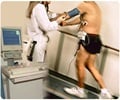Heart bypass surgery causes insomnia and other sleep disorders in most patients and affects their ability to engage in other activities during the day. Engaging in mild aerobic exercises, especially in the morning improves the quality of sleep and functional capacity.
Highlights :
- Heart bypass surgery increases the risk of sleep disorders and reduces the functional capacity of patients
- Such patients should engage in mild aerobic exercises in the morning for a good night’s sleep
- Morning exercise helps to release hormone melatonin, which improves the quality of sleep at night
TOP INSIGHT
Mild aerobic exercises such as walking, cycling, or swimming, in heart bypass patients, helps them fall asleep, stay asleep rather than waking up at night, and sleep longer and more deeply.
Read More..
Exercise and Heart Health
Engaging in mild aerobic exercises in the morning improves the quality of sleep. This is because engaging in mild workouts in the morning, helps to release hormone melatonin, that helps to sleep better at night. Coronary bypass surgery Surgery is an open heart surgery performed to remove blocks from blood vessels that supply the heart. A healthy artery is taken from the patient’s arm, leg, or chest and connected beyond the blocked arteries of the heart. This surgery is not a cure for heart disease but helps to relieve symptoms such as shortness of breath and chest pain. It also improves heart function and reduces the risk of mortality due to heart diseases.First study author Dr.HadyAtef of Cairo University, Egypt, says, "Many patients have trouble sleeping after heart bypass surgery. When this persists beyond six months, it exacerbates the heart condition and puts patients at risk of having to repeat the surgery. It is therefore, of utmost importance to find ways to improve sleep after bypass surgery."
Previous studies have examined the effect of exercise on sleep after bypass surgery, but been unable to assess the impact of exercise on functional capacity, which is the ability to do usual activities. The functional ability tends to usually decrease after surgery.
The new study presented at ACNAP Essentials 4 You, a scientific platform of the European Society of Cardiology (ESC), examines the effect of exercise on both sleep and functional capacity
Study
For the study, researchers enrolled 80 patients between the ages of 45 to 65 years. These patients had sleep disorders and reduced functional capacity, six weeks after heart bypass surgery.Three baseline measurements were performed :
Six Minute Walk Test
The test helps assess the functional capacity by making patients walk for six minutes. For the assessment, the distance covered by patients in six minutes on a hard, flat surface was measured.
Questionnaire
Patients were required to complete the Pittsburgh sleep quality index (PSQI) questionnaire, which contained questions about sleep disorders.
Actigraph Watch
Patients had to wear an actigraph watch for 96 hours that monitors rest and activity. Actigraph showed that most patients find it difficult to stay awake during the day, yet suffered from insomnia at night.
Exercise
Patients were then randomly assigned to two exercise groups. Aerobic exercise or a combination program group of aerobic and resistance exercise .
Patients in both groups had to engage in a 30-minute exercise in the morning over a period of ten weeks. The aerobic group walked on the treadmill for 30 to 34 minutes, while the combined program group walked on the treadmill for 30 to 35 minutes and engaged in circuit weight training, which is a light form of resistance exercise.
Patients also completed the three initial assessments, the six-minute walk test, the questionnaire, and wearing the actigraph watch for 96 hours after ten weeks.
The changes in sleep and functional capacity were then compared between the two exercise groups.
Results
The results showed that patients in both groups, the group that performed aerobic exercise only and the group that performed a combination of aerobic exercise and resistance training, had improved quality of sleep and better functional capacity. But the group that performed aerobic exercise alone had a better sleep and functional capacity compared to that of the combined program group.Results were able to prove that exercise helps improve sleep quality in patients after bypass surgery. It helps patients sleep better and sleep continuously rather than waking up at night, to sleep longer and more deeply.
Conclusion
Heart bypass patients who have sleep problems and difficulty in performing usual activities should engage in mild aerobic exercises. This is because resistance exercises require a high level of exertion, which may cause the release of stress hormones and negatively affect their sleep.Aerobic exercises do not require a high level of exertion. Activities like cycling, swimming or walking can be performed for 30 to 45 minutes, especially in the morning to release the hormone melatonin that aids in improving your quality of sleep at night.
Reference :
- Morning exercise is the key to a good night’s sleep after heart bypass surgery - (https://www.escardio.org/The-ESC/Press-Office/Press-releases/Morning-exercise-is-the-key-to-a-good-night-s-sleep-after-heart-bypass-surgery)
Source-Medindia
 MEDINDIA
MEDINDIA





 Email
Email










